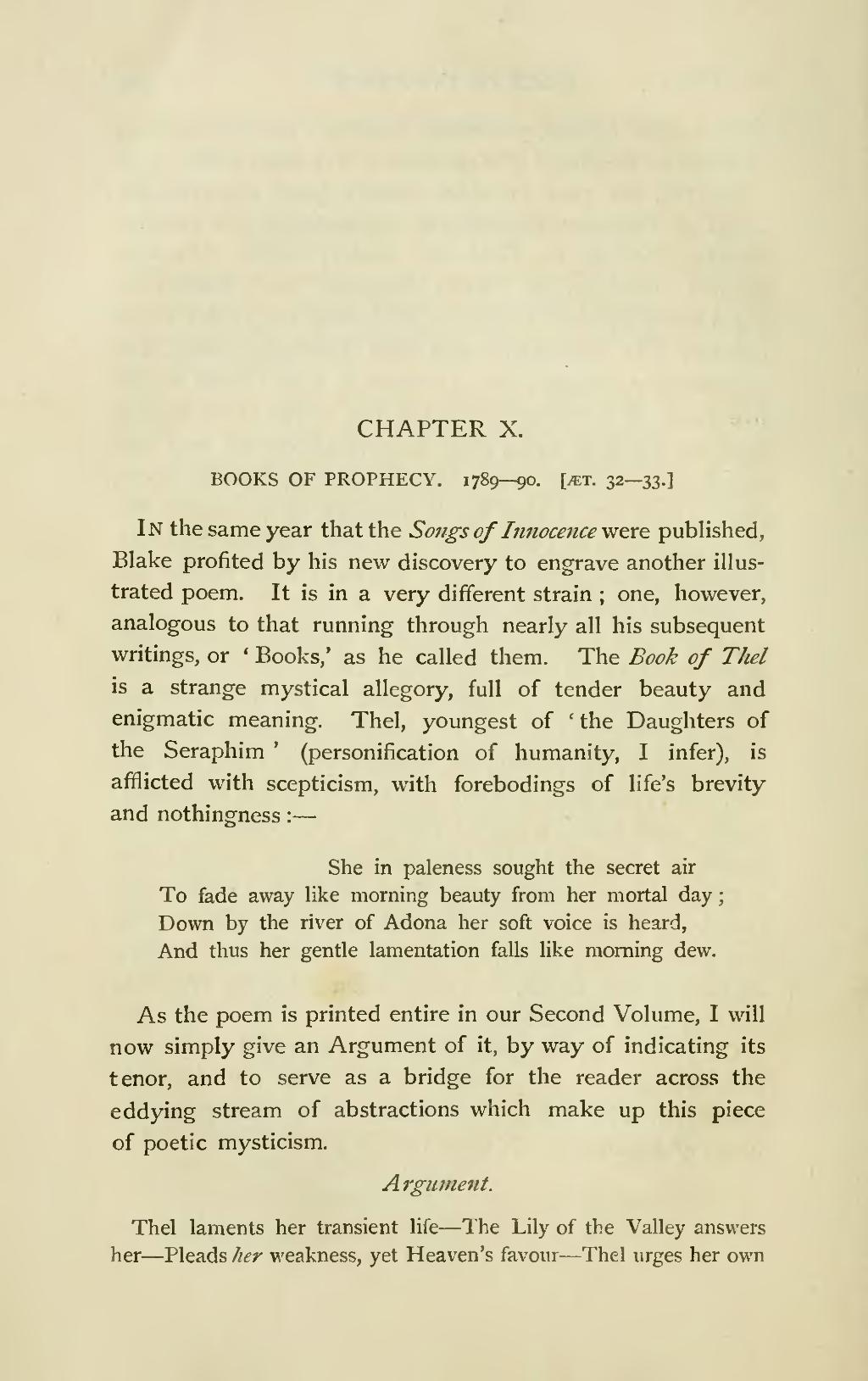CHAPTER X.
BOOKS OF PROPHECY. 1789—90. [ÆT. 32—33.]
In the same year that the Songs of Innocence were published, Blake profited by his new discovery to engrave another illustrated poem. It is in a very different strain; one, however, analogous to that running through nearly all his subsequent writings, or 'Books,' as he called them. The Book of Thel is a strange mystical allegory, full of tender beauty and enigmatic meaning. Thel, youngest of 'the Daughters of the Seraphim' (personification of humanity, I infer), is afflicted with scepticism, with forebodings of life's brevity and nothingness:—
She in paleness sought the secret air
To fade away like morning beauty from her mortal day;
Down by the river of Adona her soft voice is heard,
And thus her gentle lamentation falls like morning dew.
As the poem is printed entire in our Second Volume, I will now simply give an Argument of it, by way of indicating its tenor, and to serve as a bridge for the reader across the eddying stream of abstractions which make up this piece of poetic mysticism.
Argument.
Thel laments her transient life—The Lily of the Valley answers her—Pleads her weakness, yet Heaven's favour—Thel urges her own
